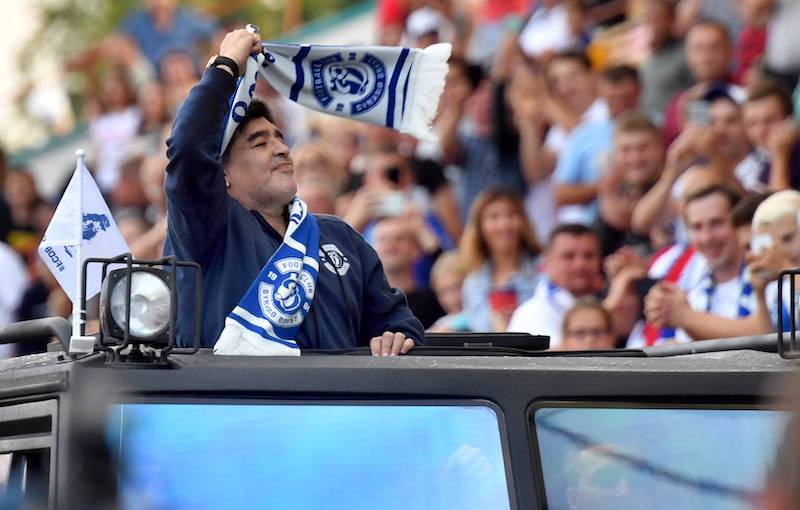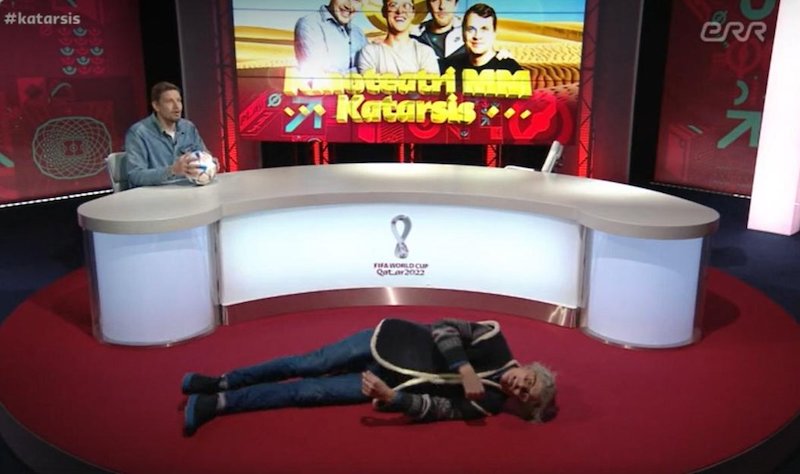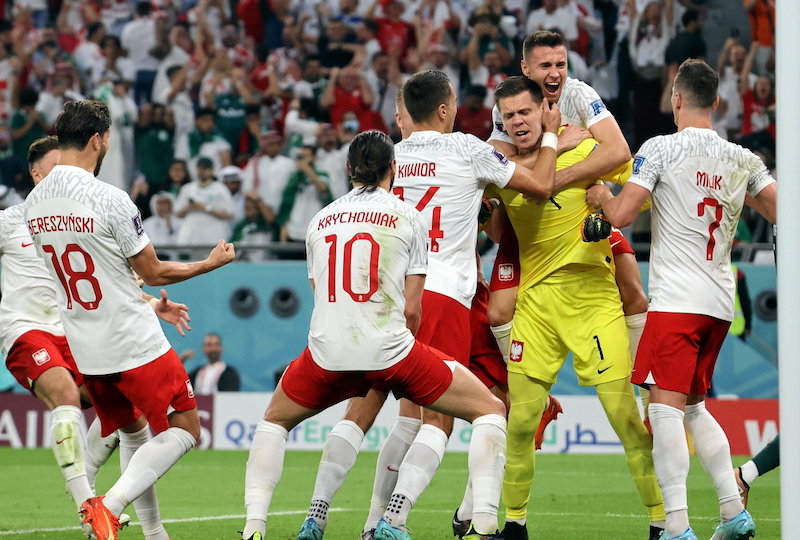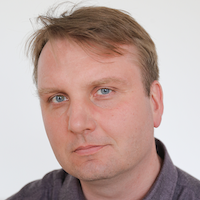Hi from Budapest,
Being Hungarian, I’ve always had mixed feelings about football. We are the nation of Ferenc Puskás, one of the greatest players of the 20th century, whose statue stands close to my office. We’re also a country where billions are poured into the obsession of a prime minister, whose kitchen window overlooks a football stadium he built in his village.
As the World Cup in Qatar has kicked off, such mixed feelings have become familiar to many football fans around the world. Many, but not all.
While some boycott the games in response to corruption and human rights abuses, others just want to enjoy the game. As one friend put it to me: “It’s football, I just want my telly and beer.”
In a way, he is right that this is not the first World Cup to be plagued by scandal. So, does that mean we have double standards? Or has the soul of football been ruined for good? We hope this week’s newsletter will offer a glimpse into our perspectives surrounding this beautiful game.
Viktória Serdült, this week’s editor-in-chief

In my family, we watched every international football match together. Every World Cup, every Euro Cup. My parents told me stories about their favorite players. About Maradona or Ronaldo. I was a diehard fan.
The last game we watched together was the 2010 World Cup final in South Africa: Spain against the Netherlands. No one spoke for the whole match, and no one went to the bathroom. We stared spellbound at the television, until we jumped up and let out the tension when Andrés Iniesta scored in overtime, and crowned Spain the world champions.
Spain’s tiki-taka football mesmerized the world, but for me, it didn’t last beyond 2010, because of the development of my political and social attitudes, which are contrary to corrupt sports events.
When I was younger, the only side I had to pick was a football team to support. That was quite easy. Always Spain, second Brazil, third Argentina, and the fourth place for the underdog. As I grew older I learned that Maradona wasn’t quite the saint my parents claimed him to be and that my favorite sport was riddled with criminality.
Everything seems to revolve around sums of money, no longer around the magical ball. I can only watch a game for a quarter of an hour, until I start thinking how professional football has no connection to my reality. That professional soccer is riddled with fraud and graft, and that ratings, television rights and finances dominate the game, rather than strategy and tactics.
There was a football that I loved. But scandals seem a part of professional football. I’m nostalgic about the game that made me cheer and jump up with excitement. I miss the rollercoaster of emotions. Professional football no longer holds a candle to that. And the championship in Qatar won’t do so either.

“To leave now would mean to betray Estonian football,” said the president of the Estonian football association, Aivar Pohlak, who appeared to be dying on the country’s national TV station.
The Macbeth-inspired monologue was not performed by Pohlak himself, but a comedian from the group Kinoteater, who fill in time between World Cup matches.
On the first day of the championship, the group criticized human rights’ violations and workers’ poor conditions in Qatar, which Pohlak claimed was against the facts. That is when Kinoteater decided to respond during a special broadcast, and it set Estonian social media ablaze.
Pohlak’s decades-long iron grip on Estonian football is still strong, despite FIFA ranking the men’s team outside the top 100 and the women’s in the 96th place. The president has a history of controversy.
The latest will probably blow over, but his tenure may go into extra time.

The knowledge that Qatar most likely won the right to host the World Cup using bribes is widespread in Poland. Yet neither the Polish Football Association, nor anyone from the national team has ever seriously considered boycotting the championship because of this.
An important reason for this silence might be that for years the Polish Football Association (PZPN) tolerated corruption in Polish football. Some of its members were even involved. Investigations are still ongoing. Last week, police detained two high-ranking Polish Football Association board members at Warsaw airport, who were on their way to Qatar for the Poland-Mexico match. The charges: fraud and money laundering.
Polish national coach Czesław Michniewicz is also a controversial figure. The media revealed that in the past he had been in telephone contact more than 700 times with the representative of a Polish football team who was in charge of fixing matches during the first football league in the early 2000s.
This was a huge scandal in which more than 600 people were charged: among them, footballers and coaches. A network pre-determined match results over the phone, with players dropping bribes to referees and the opposing team in the locker room before the game. Michniewicz was never charged, but he also never explained why he was in such frequent contact with the main suspect.
Then again, the Polish public does not seem to require this of the coach. The calls to boycott the championships are quiet and the viewing figures for the matches on TV are record-breaking. Cezary Kulesza, CEO of the Polish Football Association said: “Teams can always boycott any tournament and simply not go to it, but how many of those will you find? No one will go as far as that.”
It seems that neither ethics or transparency count at the World Cup, only results.

10,000 French fans are expected to make the trip to Qatar. This is one third of the 27,000 French attendees at the previous World Cup in Russia, and almost half the 17,000 who traveled to Brazil in 2014.
In Doha, even the tricolor shirts are discreet. Libération’s correspondent did not see a single one during the opening ceremony.
Supporters have suggested several reasons for this drop: from the difficulties of having a holiday in the winter, and higher costs to some fans’ concerns about supporting a disastrous World Cup in terms of human rights.

“We want beer! We want beer!” roared the crowd during the opening match of the 2022 World Cup. In a country where migrant workers have been deprived of their rights, where women and LGTBQ people are oppressed, and where the World Cup bid was won with cold hard cash, the public drew the line at Doha’s decision to forbid the sale of alcohol around the stadiums.
The Qatar World Cup is facing the biggest boycott of any major sports event in recent history. But something is bugging me. Russia hosted the World Cup in 2018. Russia, a country notoriously undemocratic, where political opponents and journalists fall from windows, get shot on their doorstep or are poisoned with polonium, and where the World Cup bid was also won by dirty money.
Was there a boycott there? No. Sounds like something has changed… Or that there are some double standards. Why were European societies ‘ok’ with Russia’s Cup and not with Qatar?
Let me underline some aspects that could play a role: Qatar is different from us Europeans, and the ban on alcohol is just a small part. We could close our eyes to politics and focus on the game in Russia with the help of all the party that comes with football: beer, pre-match joy on the streets, fights with rival fans, and even prostitution.
You can find none of that ambience in Qatar. This time, there is a specific anti-Qatar feeling, driven in part because of its strict Islamic-based laws, but also because it is unattainable for the average fan to attend.
Many fans feel the show has been stolen from them. That is why we do not have the incentive to close our eyes, as we did with Russia.
Thanks for reading the 10th edition of European Focus,
There are still more than two weeks to go before we find out the finalists in the World Cup. Until then, we’ll witness drama, twists, tears and ecstasy on and off the pitch.
But the question of how the Qatar World Cup will be remembered is not only about winners and losers. It is also about reflecting on mistakes we might have made – and vowing never to repeat them. Making sure that even a small kick can make a big change.
See you next Wednesday!
And if you have any reactions, feedback and suggestions for our future editions, feel free to share!
Viktória Serdült






